The Invention of Love at Hampstead Theatre
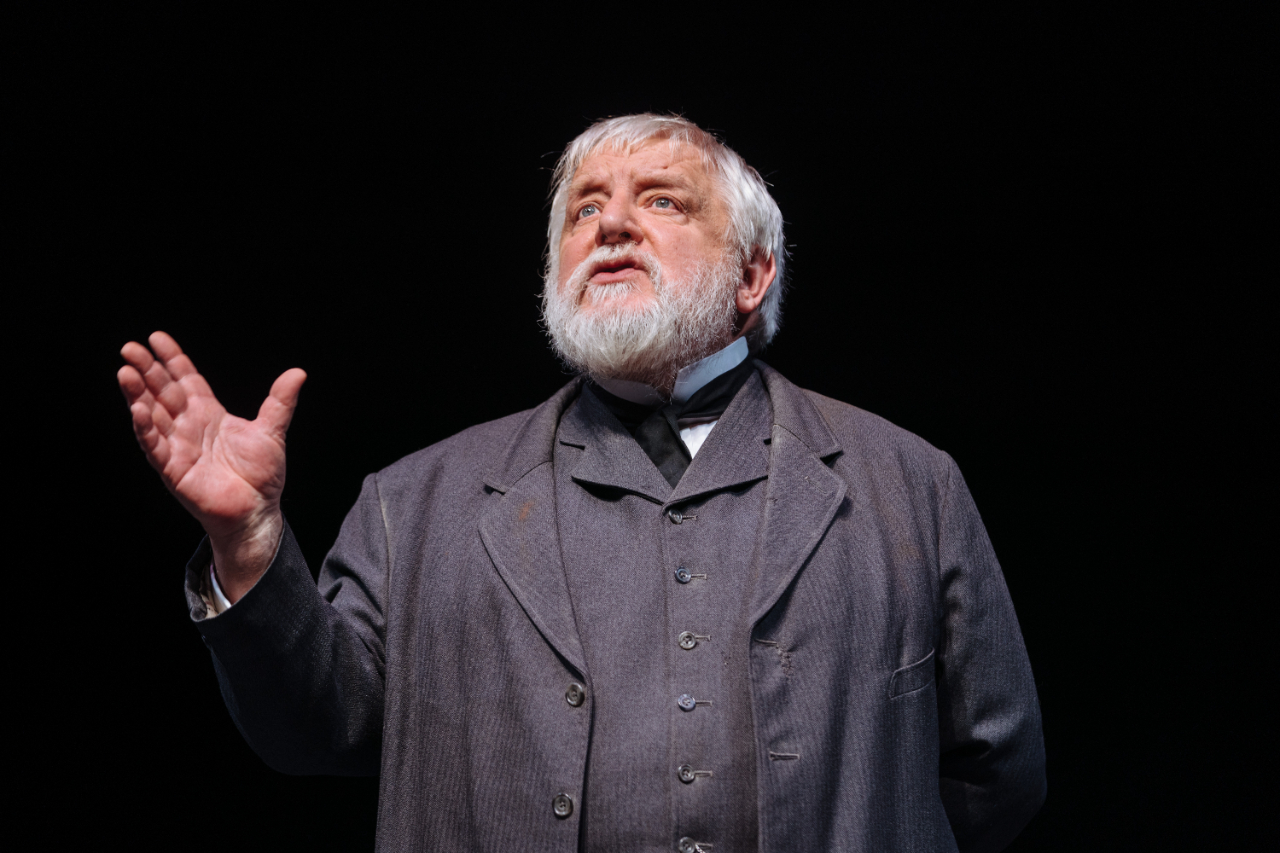
“I’m dead, then? Good.” With this wry, sardonic opening line, 77-year-old AE Housman finds himself ferried across the River Styx to Hades in Tom Stoppard’s 1997 play The Invention of Love. These words befit a renowned Latin poet and scholar who, famous in his lifetime for his poetry book A Shropshire Lad, never quite lived. Housman’s erudite life, memories and longing are, in this revival, revisited with haunting clarity under Blanche McIntyre’s tender direction. It’s a play that grapples with what it means to live with passion and the choices we make, and a nostalgic love letter to the politics of literary scholarship.
Simon Russell Beale is compelling as the older Housman turned jaded and wistful by his experiences. Given the chance to reflect on a life defined as much by intellectual rigour as emotional restraint, memories from his younger life materialise before him. Older Housman visits his fastidious younger self, embodied by Matthew Tennyson, and his undergraduate Oxford days spent with his two closest friends: his Classics peer, Pollard (Seamus Dillaine) and the heterosexual science student and athlete Moses Jackson (Ben Lloyd-Hughes) for whom Housman harboured an unrequited love.
The first act is contained, flitting between the trio’s rowing days – during which their idea of idle talk means dissecting the love poems of Catullus – and transitions that bring mid-19th century Oxford’s world of literary luminaries to life. Here, the rather absurd figures of Ruskin, Pattison, Pater and Jowett engage in florid debates covering everything from the social order of ancient Greece, to Aestheticism, to – crucially – the notion of “beastliness”, emblematic of the Victorian anxieties around what was emerging as a discourse on homosexuality. All over a casual game of croquet, naturally.
Set on an empty, dimly lit stage, the play’s focus is drawn entirely on language that demands our concentrated attention. Words are what fill the space. Words that haunt, and confuse – easy enough if you blink during a dense classical rambling – and resonate, and at times, cut deep. But McIntyre’s production also highlights where words might fall short in the expression of love: in one scene, footage of Moses Jackson running is projected above the stage where Housman stands still, but he never gets any closer, symbolising a frozen state of repressed desire.
The play certainly has a mind, but its heart is harder to uncover, buried beneath thick layers of verbosity and textual criticism. After all, it finds its drama in AE Housman’s (or Stoppard’s) love for epistemology and pedantic concern with classical allusions. Filled with rigorous debates about the works of Ovid, Horace and Propertius to name very few, and punctuated by lengthy recitations in Latin and English that often feel more interruptive than integral, it is fair to say that those without background classical knowledge will be thrown in the deep end. But all audiences, regardless of their level of understanding, will likely find themselves asking the same question: what determines the value of knowledge, and who decides its worth?
Even as the emotional weight of older Housman’s restrained affection culminates in the briskly paced second act, his meeting with the great Oscar Wilde (played by Dickie Beau) is the more piercing moment. Stoppard brings together these two men of the same era – who have never met in real life but suffered in different ways for their homosexuality – for a rather heated conversation about how each, in their own way, invented a version of love to live with.
Calling Housman and Wilde foils on one another (the former repressed, the latter indulgent) – feels too easy, then, in a play where language itself defies rigid categorisation. Language, unconstrained and unapologetic, makes no demand to be understood and feels no obligation to be accessible, offering Housman an alternative form of freedom: a vessel for his unexpressed sexuality.
Ruweyda Sheik Ali
Photos: Helen Murray
The Invention of Love is at Hampstead Theatre from 4th December 2024 until 1st February 2025. For further information or to book visit the theatre’s website here.

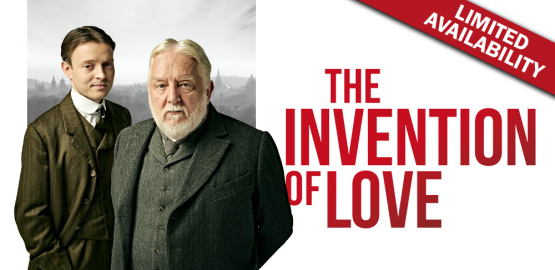
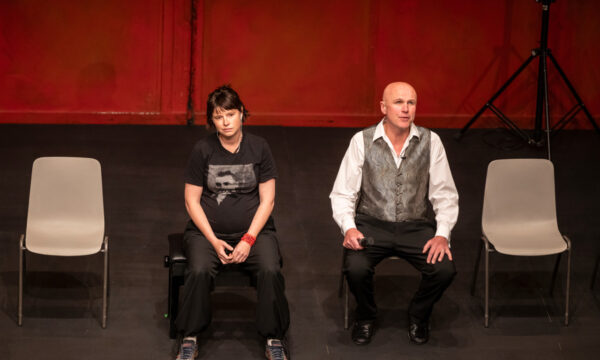
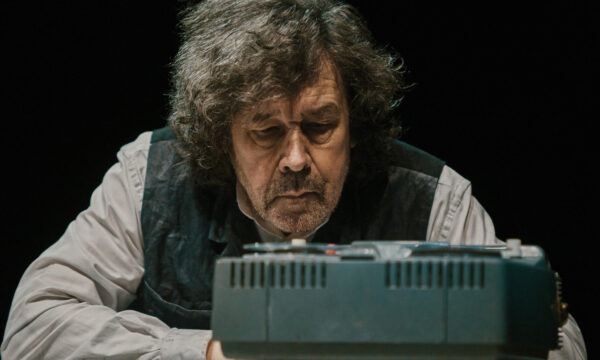

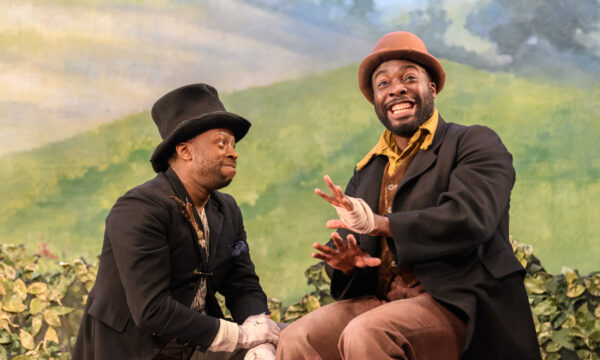

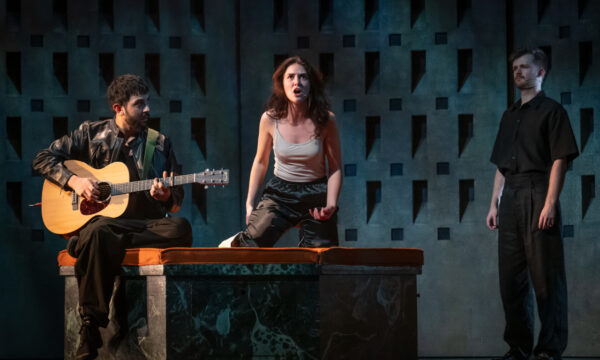








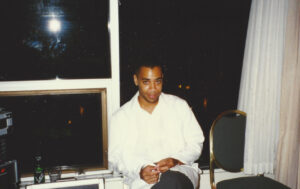



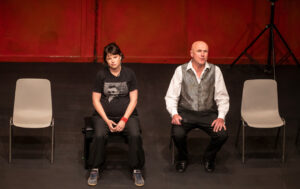





Facebook
Twitter
Instagram
YouTube
RSS